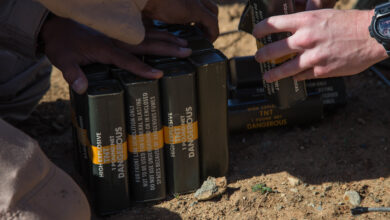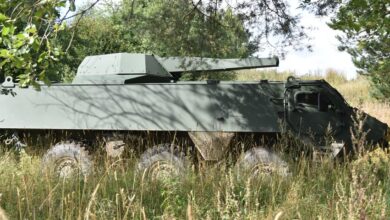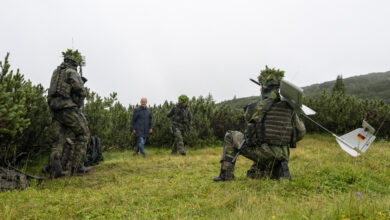Hungary to Equip 209 Lynx Infantry Vehicles with StrikeShield APS
StrikeShield APS uses high-performance sensors, countermeasures, and high-speed computing elements to counter threats close to the vehicle.
Hungary is equipping 209 of its new Lynx infantry fighting vehicles with the StrikeShield hard-kill active protection system (APS), German defense company Rheinmetall announced.
In a contract worth 140 million euro ($171 million), the 209 Lynx infantry fighting vehicles (IFVs) that Hungary ordered last year will be fitted with the StrikeShield APS, which uses high-performance sensors, countermeasures, and high-speed computing elements to counter threats in proximity of the vehicle. Early warning detection and quick interception provide 360-degree protection, resulting in minimal collateral damage.
Hungary’s decision to equip the vehicles with StrikeShield was driven by its “commitment to taking part in demanding missions where modern anti-tank weapon systems present a dangerous threat,” according to Rheinmetall’s press release.
StrikeShield is the third and latest generation of Rheinmetall’s “Active Defence System (ADS) technology,” a variant of the hard-kill APS. The company claims that it has the fastest reaction time in ambush and multi-hit situations, as well as the lowest electromagnetic spectrum emissions on the market.
Lynx Integration
Rheinmetall also developed the Lynx IFV, which the company describes as “an agile, hard-hitting, and adaptable vehicle with huge payload reserves.” Rheinmetall plans to mechanically integrate the StrikeShield APS into hybrid armor tiles on the Lynx.
“We see huge benefits from hybrid designs,” Dr. Manfred Salk, CEO of Rheinmetall Protection Systems, said.
“The effects that passive armour protects you from are standardized and well-understood. Hybrid designs are different. They allow us to do a much better job of dealing with new effects and threats, such as residual energy from a disabled rocket hitting the vehicle and deflagrating,” Salk added.
Last year, Hungary became the first NATO and EU member to order the Lynx IFV— 218 of them— in a deal worth 2 billion euro ($2.4 billion). This places Hungary “at the forefront of European army technology” and “reaffirms the Hungarian government’s commitment to being a reliable, more militarily effective partner of its NATO allies,” Rheinmetall chairman of the executive board Armin Papperger said.
Forty-six of the Lynx vehicles will be built in Germany and delivered by the start of 2023, while the remaining 172 vehicles will be built in Hungary.












